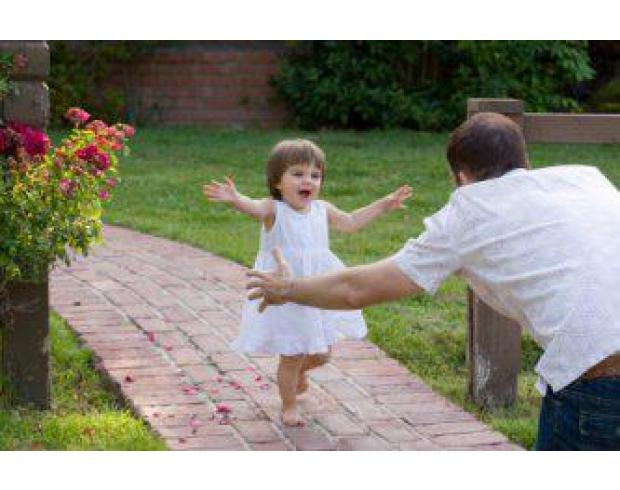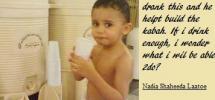Part 1: Importance of Rewarding your Kids 1. Link your kid to Allah - by creating a world of accountably to Allah in the home. It encourages the kid(s) to thrive for what is good. Knowing that the reward for good behaviour is 10 times greater than bad behaviour – this is a profound method of encouragement to do well. My kids will always say that for people to end up in the hell fire “they must be REALLY bad mom! “Don’t you think so?” ”I always reply, “I could not agree more. Now that they understand their accountability to Allah, it always creates motivation and desire to please Allah as much as possible. Even when you reprimand them, remind that Allah is always watching them. Don’t get me wrong, I am not saying do not reward behaviour with things like, sweets, money, toys etc. Establishing the love of Allah and building the correct relationship establishes a lasting loving relationship with their creator, which makes the taribiyyah process easy for parents InshAllah. Final product: A well-grounded productive kid. 2. Reward them with non-materialistic items- rewards such as trips to the park or wild resorts, connects your kid to nature. We do not want to give them too many tangible rewards, as this will always be constantly expected. So find a balance between intangible and tangible rewards. With my kids - if one has demonstrated good behaviour or done something well worth praising, I say “you will have a day out with mommy food shopping” or we can visit the park to see the deer’s and they love this! J 3. Create easily achievable goals - for the kid, to prove that it is worth the effort. Rewards are effective in not only increasing the occurrence of positive behaviour, but also in decreasing negative behaviour and increasing a kid's self-esteem. The most effective rewards for kids are those that are the easiest to give -praise, encouragement, hugs, thanks, attention, love etc. 4. Use descriptive praise - When praise is specific and descriptive it becomes very useful, for example, “I liked the way you helped your brother with his home work”. “I appreciate it when you bring your dish to the sink” or “I like the way you shared your toys with your friends this afternoon” – this works well with the slighter older kids, nearing their teens 5. Rewards kids according to their capabilities- “Allah does not burden the soul beyond its capabilities” (Q2:86). This principle extends to our kids too. We should praise and encourage kids, in what they can do and for their efforts and achievements. Most importantly the effort they have put into anything they have achieved. Although, I would argue that encouragement is a greater motivator than rewards in building a kid’s confidence and self-esteem. Last night when I arrived home, my 10-year-old daughter had prepared me a special dish; I gave a huge hug and a big kiss. I prayed that Allah reward her with Jannah – her face was beaming! She leapt out of the room to tell the others. A Kid’s inner confidence will grow and they feel more rewarded once they have your approval as a parent. 6. Reward charts and stickers – If you are trying to develop habits in a kid or get them into a regular routine - reward charts and stickers are fantastic. For example, getting your kids to go to bed on time, brush their teeth before going to bed or getting dressed on time. The idea is to replace external motivators with internal gratification brought on by the kid's own desire, to behave and please others as well as him/her. Consistent praise creates an internal feeling of satisfaction and makes the kid feel fulfilled. Thus removing the need for physical rewards. Allah tells us this already in the Quran, that He rewards our efforts and not achievements. Other rewards that an expert says would be appropriate: For a kid who’s doing a good job brushing his teeth, the chance to pick out a new tooth brush. For a kid who behaves well during story time, the privilege of choosing the next three books from the library. For a kid who’s staying dry during potty training, a trip to the store to pick out underwear. For a teen that’s showing responsibility, more driving privileges or one-on-one fun time with a parent. “Connect it to the positive choices they’re making,” to be continued....
2014-04-18 07:44:10
Part 1:
sign in to comment
Be the first to comment





